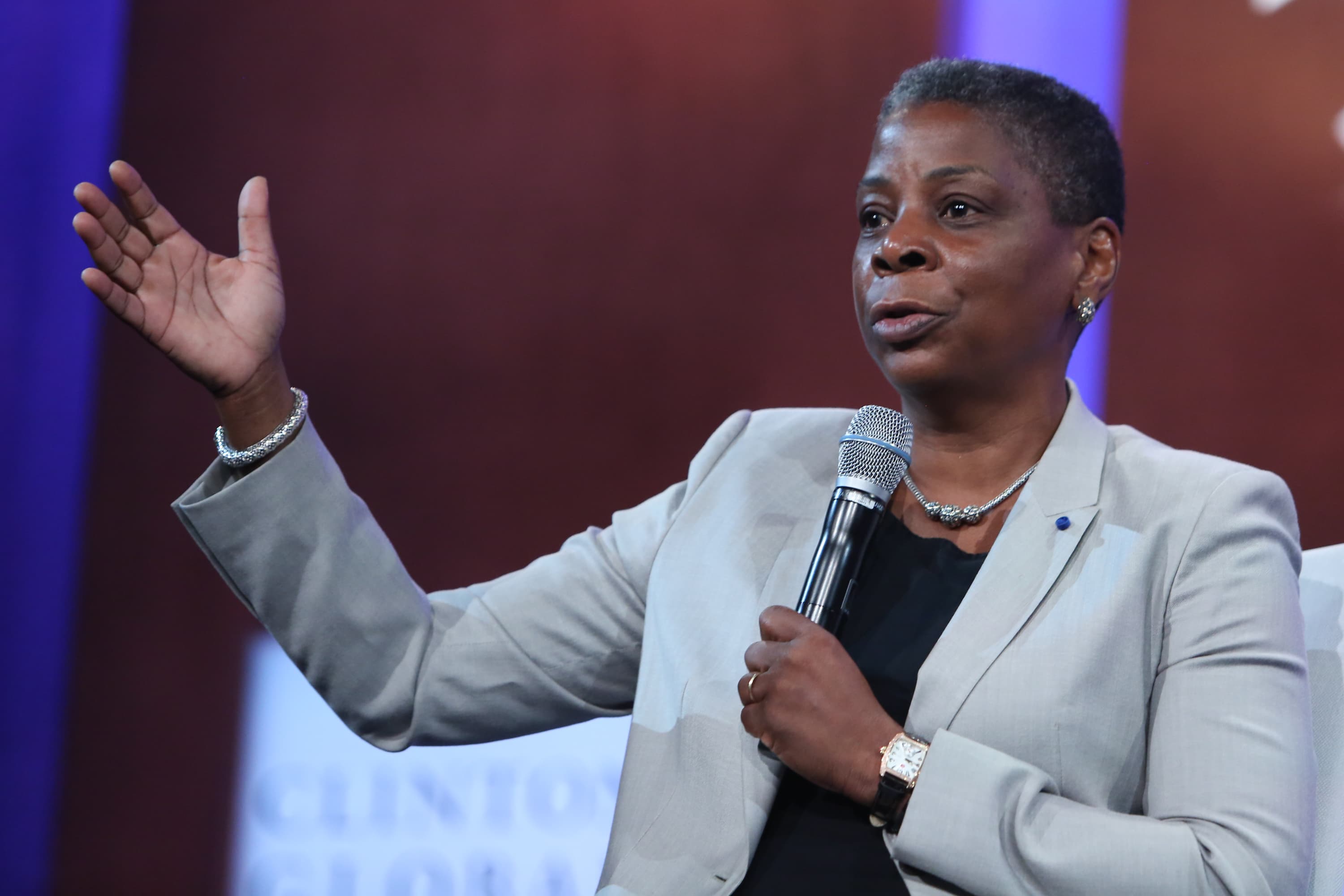
Former Xerox CEO Ursula Burns told CNBC on Tuesday that rethinking criteria can help companies improve the gender and racial diversity of their boards.
In an interview on “Closing Bell,” Burns — the first Black woman to become CEO of a Fortune 500 company — said the notion that there’s a shortage of qualified board candidates who are female, people of color or both is “small minded.”
“The specifications are biased, not that people are incapable. Some people are, but this is not what we’re talking about here,” said Burns, who serves on the boards of Uber and Exxon Mobil.
“They spec’d it in such a way that only 5 people or 10 people could possibly fit the specification, and every one of those guys are boarded up. Some of them are getting too old to serve,” she said.
For example, Burns said, the requirement that board members be current or former CEOs has been a barrier to the nomination of Black business people.
“Guess what? There were probably 20 of us in all existence. So, after you run through the 20, you’re not going to get any more, if that’s the criteria,” said Burns, whose memoir, “Where You Are Is Not Who You Are,” was published Tuesday.
The topic of director diversity was thrust into a brighter spotlight last year after the murder of George Floyd sparked a wave of racial equity protests across the world and corporate pledges to address racial disparities in hiring, board composition and the economy writ large.
In 2020, 82.5% of board seats at Fortune 500 companies were held by people who are white, according to a recent report from consulting firm Deloitte and the Alliance for Board Diversity.
Burns has said she’s working to make sure improving representation across corporate America sees sustained momentum. “The intensity has changed very significantly,” she told CNBC earlier this year. “We’re making this a movement.”
Structural challenges must be overcome in the process, Burns said Tuesday.
“What has happened in corporate America is that the playing field … was defined by white men. The rules of the game were defined by white men. The referees are white men,” she said. “These white men say, ‘We have nobody who fits this game that I specifically designed for me except for people who look like me,'” she added. “Well, surprise, surprise.”
Burns said if she is asked by someone in corporate America for recommendations of potential directors who are female, people of color or both, “I can give you a list of names if you want them.”
However, she said, she’d prefer to handle such a request in a different way.
“I would say to them, ‘You send me your spec, I’ll fix it for you, help you fix it, and then I’ll give you a load of names that you would not believe that would be phenomenal directors.'”




